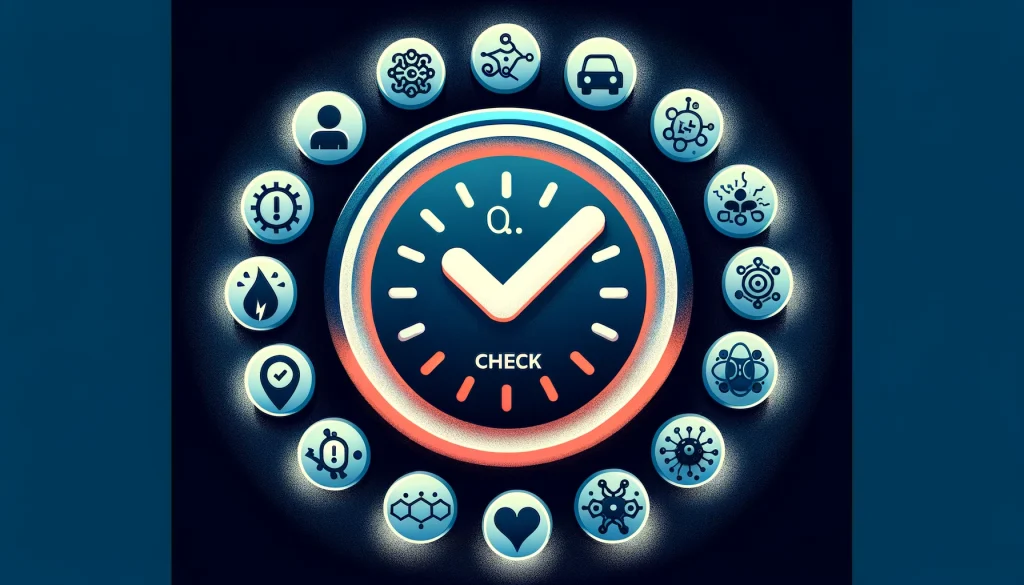This week we are talking about Tic Disorders and Anxiety



Tics and Anxiety: Two Peas in a Dysfunctional Pod
If you or your kiddo are dealing with tics, anxiety, or both, I’ve got some news for you. These two conditions aren’t just besties – they’re practically joined at the hip. But before we dive into the nitty-gritty of how they’re connected, let’s set the record straight.
The Real Problem: It’s Not What You Think
Tics? Anxiety? Depression? Autoimmune issues? They’re not the enemy. Nope, they’re just the smoke signals your body’s sending up to let you know something’s wrong. Think of them as your own personal “check engine” light.
So, when we’re talking about tics and anxiety (or any other health issue, for that matter), remember this: the symptoms aren’t the problem. They’re just the clues that lead us to the real culprit.
The Neurological Nudge
Now, let’s talk about what’s going on in that beautiful brain of yours (or your child’s). Studies have shown that both tics and anxiety can be traced back to a little something called the basal ganglia. This set of brain structures helps regulate movement and emotions.
When the basal ganglia is out of whack, it’s like a game of neurological dominos. Tics? Anxiety? They both come tumbling down.
The Inflammation Situation
But what’s causing that basal ganglia to go haywire in the first place? Enter: inflammation. It’s like the ultimate party crasher, and it’s showing up in all the latest studies on tics, anxiety, and their neurodiverse cousins (we’re looking at you, OCD and ADHD).
When your immune system is stuck in overdrive, pumping out inflammatory chemicals like it’s going out of style, your brain feels the heat. Cue the tics, the anxiety, and the whole dysfunctional shebang.
The Four Horsemen of the Tic-pocalypse
So, what’s revving up that immune system and setting the stage for inflammation? It’s time to meet the four triggers:
- Environmental factors (mold, chemicals, toxins – oh my!)
- Biological baddies (infections, leaky gut, food sensitivities)
- Physical stressors (sitting all day, alignment issues)
- Emotional and mental mayhem (bullies, trauma, jerky bosses)
When these triggers team up, it’s like the ultimate inflammation party. And trust me, you don’t want an invite.
The CRP Connection
If you really want to see inflammation in action, just take a peek at your C-reactive protein (CRP) levels. This little blood marker is like a thermometer for your immune system.
Studies have shown that higher CRP levels are linked to – you guessed it – anxiety and depression. It’s like a flashing neon sign that says, “Inflammation, party of one!”
The Cytokine Storm ⛈
But wait, there’s more! When inflammation runs rampant, it can trigger a cytokine storm in the brain. These little immune messengers (known as microglia) get all riled up, pumping out glutamate, which results in a neurological fiesta of anxiety, tics, and general chaos. It’s like your brain’s stuck in fight-or-flight mode, and the party just won’t stop.
The Nutrient Deficiency Debacle
But inflammation isn’t the only piece of the tic-anxiety puzzle. Nutrient deficiencies and poor dopamine turnover can also fuel the fire. Take it from me – when I finally got to the root of my own issues (leaky gut and gluten sensitivity!), my anxiety packed its bags and hit the road.
Summary
So, what’s the takeaway here? If you or your child are stuck in the tic-anxiety loop, don’t just settle for symptom management. Dig deeper. Test, don’t guess – book a call with us.
Work with a practitioner who can help you identify and address the root causes – whether it’s hidden infections, environmental toxins, or straight-up nutrient deficiencies. Because when you get to the heart of the matter, that’s when the real healing begins.
And remember, you’re not alone in fighting the good fight against inflammation, one cytokine at a time.

